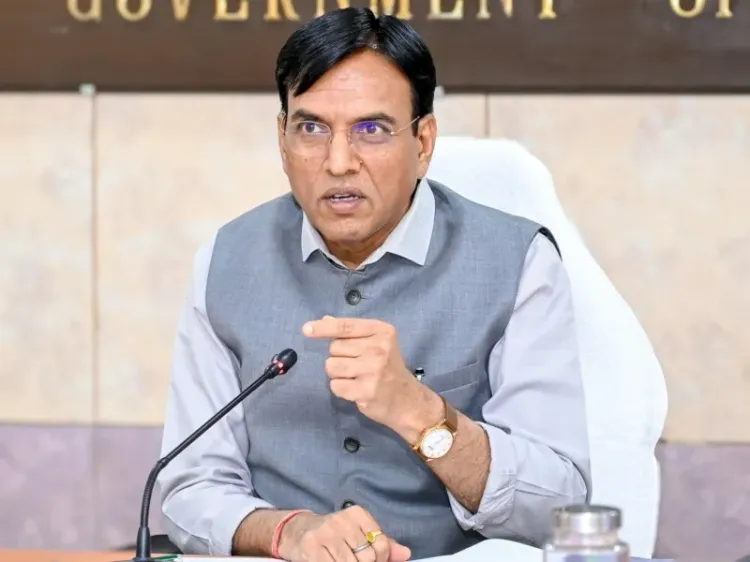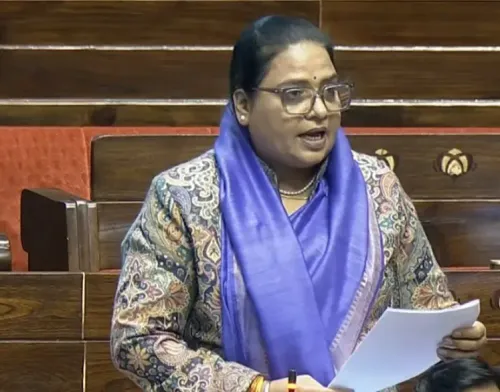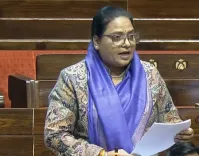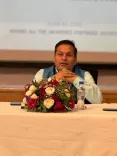How has Nano Urea Transformed the Agricultural Sector?

Synopsis
Key Takeaways
- Nano Urea is a groundbreaking innovation in agriculture.
- It significantly reduces reliance on harmful chemical fertilizers.
- The technology enhances nutrient efficiency and improves soil health.
- A small bottle of Nano Urea can replace a full sack of traditional urea.
- India is positioned as a leader in sustainable agricultural practices.
New Delhi, June 7 (NationPress) Nano urea, a product of nanotechnology, has transformed the agricultural landscape by significantly reducing the reliance on chemical fertilizers that pose risks to both soil and human health, stated Union Minister of Labour and Employment Mansukh Mandaviya.
In a video shared by Modi Story on the social media platform X, Minister Mandaviya recounted how a straightforward suggestion from a young scientist to Prime Minister Narendra Modi initiated the journey towards the creation of nano urea within the country.
This innovative approach culminated in the establishment of the first-ever nano urea plant in India, in collaboration with the Indian Farmers Fertiliser Cooperative Limited (IFFCO).
In June 2021, IFFCO introduced the globe's first 'Nano Liquid Urea' fertilizer, followed by the launch of Nano-DAP (di-ammonium phosphate) fertilizers in April 2023. Not only have local farmers benefited, but the technologies are also gaining international recognition.
“I vividly recall how PM Narendra Modi Ji took a simple suggestion and transformed it into the groundbreaking innovation of nano urea. Modi Ji exemplifies true leadership by turning ideas into effective solutions,” Mandaviya expressed, reacting to the post on X.
He emphasized that nano urea, engineered through nanotechnology and composed of plant nutrients in minuscule particle sizes, serves as a safer alternative to chemical fertilizers that can degrade soil quality.
“Currently, a 100 ml Nano Urea bottle can replace an entire sack of urea, drastically cutting transport expenses, safeguarding soil, and assisting farmers,” Mandaviya noted, who previously held the position of Fertiliser Minister. He added that the nation has the capability to produce 2-3 lakh bottles of nano urea.
IFFCO's Nano Urea is widely regarded as a revolutionary change in fertilization.
It enhances nutrient usage efficiency, boosts nitrogen absorption, and notably minimizes nitrate leaching. Furthermore, it improves soil health, necessitates less water, and has a reduced carbon footprint compared to traditional urea.










